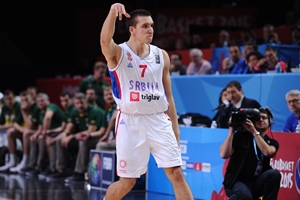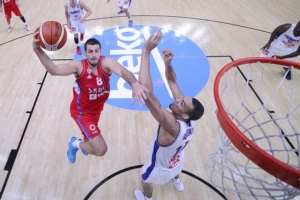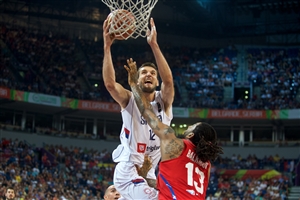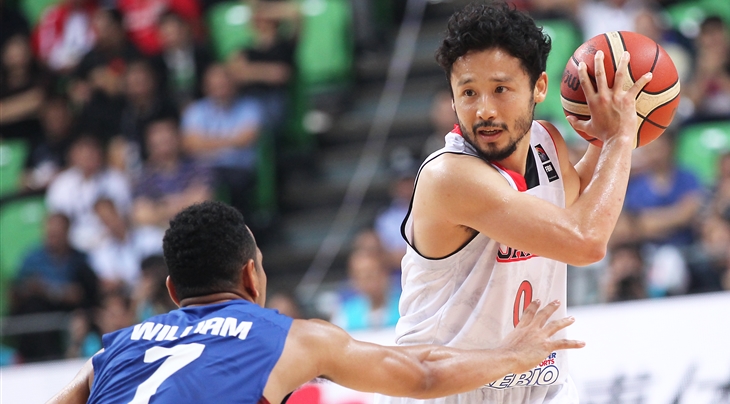
Japan aim to 'challenge the world'
TOKYO (2016 FIBA Olympic Qualifying Tournaments) - It's going to be a very tall order for Japan to reach the Rio de Janeiro Games but that's the aim for coach Kenji Hasegawa, who in less than two weeks will lead the Far East side into battle at the FIBA Olympic Qualifying Tournament (OQT) in Belgrade.
Japan, who boast terrific talents like Makoto Hiejima, Yuta Tabuse and Joji Takeuchi, will go up against the Czech Republic and Latvia in Group B and potentially face Serbia, Angola and Puerto Rico out of Group A, must win the six-team OQT if they are to play at an Olympics.
"Our 48th place in FIBA World Ranking is the lowest among the 18 countries participating in OQTs and the OQT is a challenge that Japan has never experienced," Hasegawa said to FIBA.com.
"But the OQT is the first step that we want to take in the world level.
"First step to challenge the world" is our slogan and as long as we take part in the OQT, our goal is to participate in the Rio Olympic Games."
No Asian team won a game at the 2008 and 2012 OQTs in Athens and Caracas, respectively, so history is indeed against Japan. Hasegawa steered the team to a fourth-place finish at last year's FIBA Asia Championship.
"In OQTs, the record of Asian countries is zero wins and eight losses," the coach said. "This is a fact, but we cannot take the first step unless we rewrite the history. Therefore, we'll try to win the first game and go from there."
Hasegawa has been weighing up his options on squad selection by coaching Japan in the Atlas Challenge in China. Japan opened with a win over a China B national team but suffered defeats to the other opponents, including Manila OQT side New Zealand in their second game. None of those setbacks was a blowout.
"The Atlas tournament was a part of the selection process to decide the members for the OQT," the coach said. "It was very difficult because we had to change players in each game.
代表:【レポート更新】男子日本代表「2016 Atlas Challenge」
— 公益財団法人日本バスケットボール協会 (@JAPANBASKETBALL) June 20, 2016
7位決定戦 ベラルーシにリベンジならず。竹内譲次選手がリバウンド王を獲得https://t.co/nj8Qxcthpa#akatsukifive pic.twitter.com/NzsIOu5lQ0
"Throughout the tournament, the way that our team entered the games improved. Defensively, we were able to limit Belarus to 69 points in the last game. The team is getting better but we were not able to make our shots and score."
Hasegawa knows the perimeter game needs to click for Japan to have a realistic chance of winning games. It was not, however, in the Atlas Challenge.
I wish we had a longer training period. However, it is the national team's destiny to fight under any circumstance and we cannot stop. No matter how much I worry about our situation, it will not take us anywhere. - Hasegawa
"As Japan, we would like to use our outside shooting abilities, but opponents are fully aware of our team's strengths," Hasegawa said. "When the opponents put pressure on us, our feet stopped and did not connect to the next play.
"In most of the games, we were not able to rebound and that allowed the opponents to come back. We were not able to overcome the losing pattern."
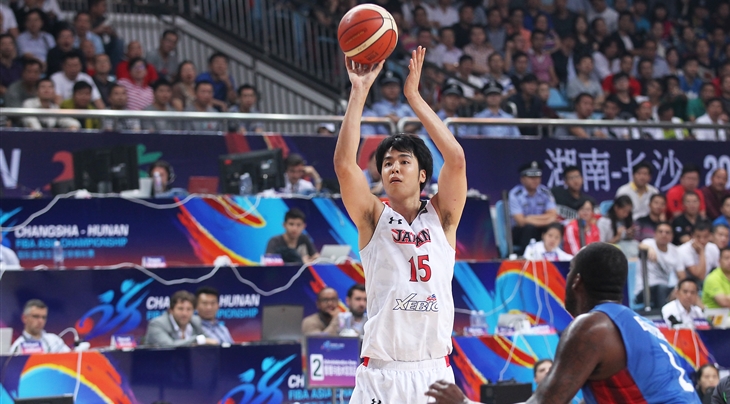
Japan (JPN) are seeking improvement on the perimeter
Hasegawa does have a clear idea of what Japan can do better to improve their offense.
"We do not have much time before the OQT," he said. "We do not have time to improve technique, so we need to limit our focus on team offense and play more simple offense, improve screen plays and switch defense, and have more awareness on rebounds to protect the inside. We will do our best to improve those points."
Hasegawa and Japan are in a race against time. Every minute of every practice is going to be important.
"Our training period is very short so I am worried," he said. "I wish we had a longer training period. However, it is the national team's destiny to fight under any circumstance and we cannot stop. No matter how much I worry about our situation, it will not take us anywhere."
So what kind of team can the Czechs and Latvia expect to encounter?
"I will build a team that would perform with the strong discipline and endurance, which is one of the strong characteristics of Japanese," the coach said.
FIBA

